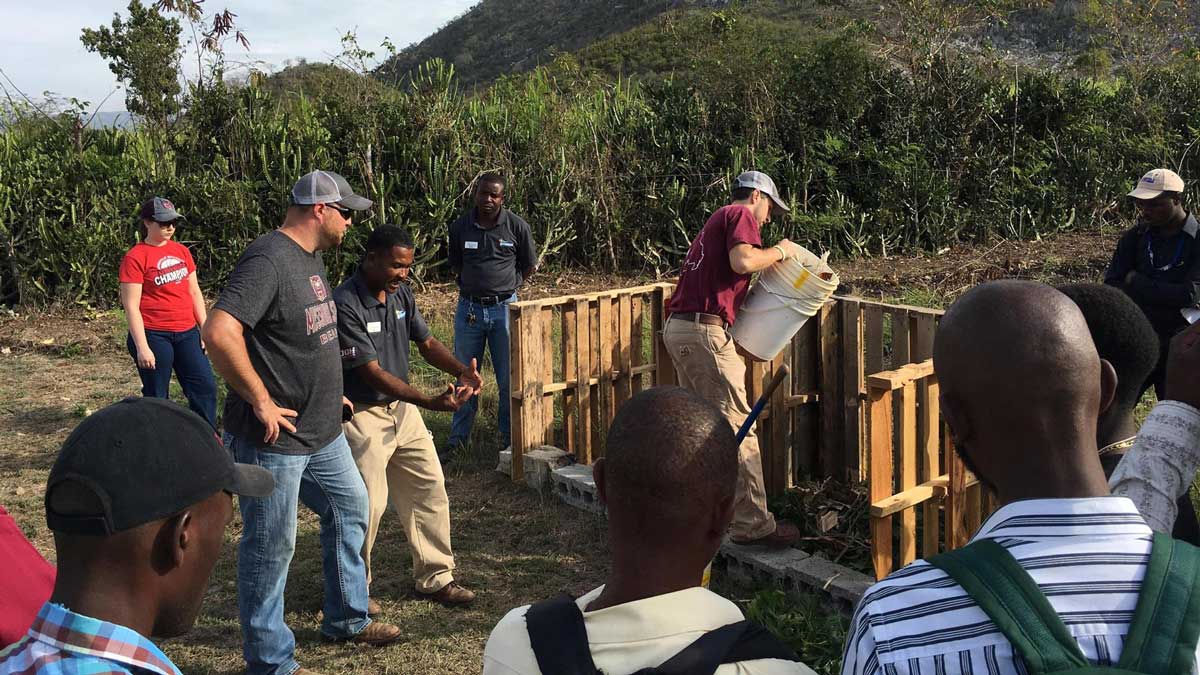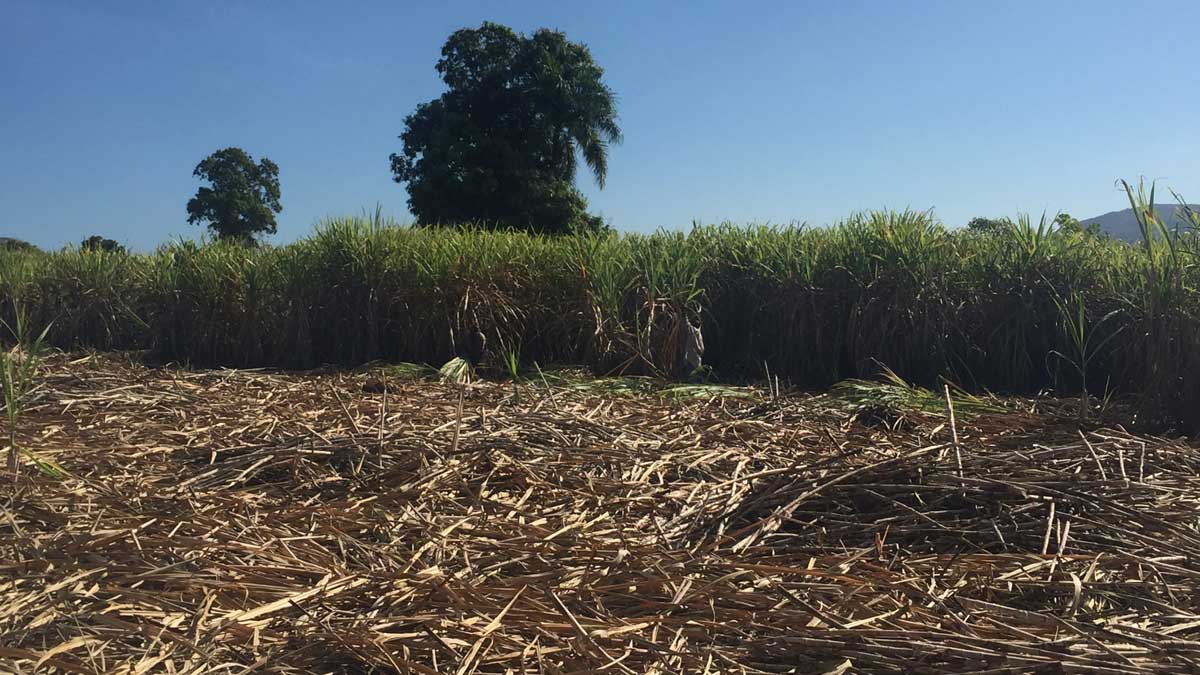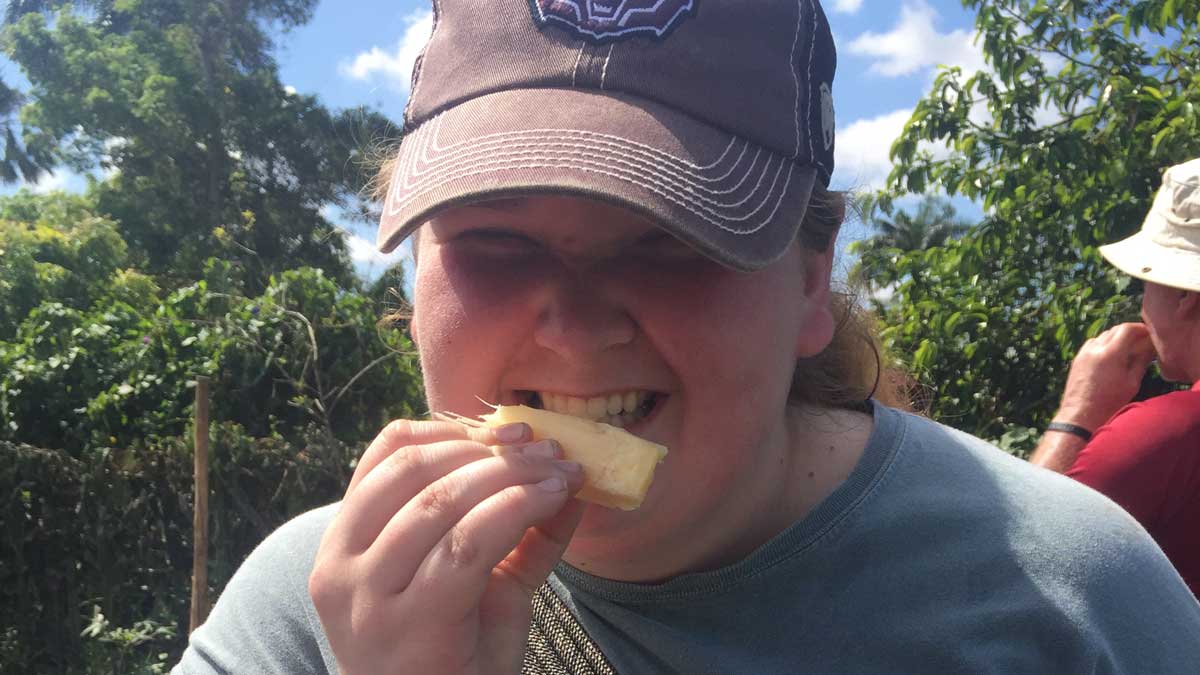Over the 2017 spring break, a group of 10 agriculture students went on a Service Learning Study Away trip to Haiti.
Led by Dr. Michael Burton, professor of agriculture, in partnership with Project H.O.P.E., the trip involved observing production systems, volunteering at the Haiti Home of Hope orphanage and training agricultural producers in areas, such as animal health, soil and water conservation and composting.
Agriculture students Karlie Beckett and Erika Cooperman were part of the group and shared their stories from the trip.
This is Erika’s story.
Beyond expectations
Before leaving for Haiti, a friend who went on last year’s trip told me all about it and what to expect. I thought I had a complete picture of what Haiti would be like in my head, but that totally changed just a day into our trip.
I was of the mindset that because Haiti is such a poor country, the farmers would not know how to do things as well as farmers in America or things would be unorganized. However, our visit to the first farm, a vegetable farm, blew that mindset away.
Everything was organized and there were irrigation canals that brought fresh water from a nearby river. While the farmer was not available to meet us at the farm, we were able to talk on the phone with him with the help of our translators.
The second farm we visited, a sugarcane farm, was also very impressive. It was situated on a steep hill and if left unprotected, the soil would erode quickly, especially during the wet season. However, there was so much ground cover.
Every inch of the farm that didn’t have sugarcane growing on it was covered in pressed sugarcane stocks. That showed how much the farmer cared about the longevity of his land and the health of his crop.
He also paid people who helped him with leftover sugarcane stocks (which are then fed to their livestock), so there wasn’t much being wasted on this farm. Everything had a use, which is cool when you think about it from a sustainable agriculture standpoint.

Trip highlight
One of my favorite parts of our trip was the training sessions with the Haitian farmers. Months before the trip, we started planning and researching about topics we thought would be important to them that we would present. A few students and I worked on soil conservation and water management.
More than 20 farmers attended the sessions over two days and it was amazing. It wasn’t just us doing the teaching because the farmers shared their experiences and asked a lot of questions. They wanted to know more even though they were already doing a stellar job.
The training sessions further ignited my passion for agriculture because I was able to see clearly just how much a small-scale agriculture production farm helped a family directly. In the U.S., unless you live and work on a farm, the average consumers get their food from a grocery store.
The majority of people do not see where their food is coming from. However, in Haiti, and other developing countries, their grocery store is in their backyard or in a street market. Even the smallest of farms has the potential to feed one family. This is why agriculture, whether a small organic production farm or a large cattle ranch, is a universal practice that benefits everyone.

An eye-opening experience
This trip isn’t one that you can experience and then forget about once you return to your regular life. It changes you. It changed how I think about my community here in Springfield and about how I look at the challenges many face with hunger and food insecurity.
This trip showed me that I can use my passion for sustainable agriculture to help those in need right here in Missouri or in communities across the world if that is where I feel led to go. Most importantly, this trip taught me that being a #CitizenBear is more than just caring about certain issues – it’s about answering the call to help.

